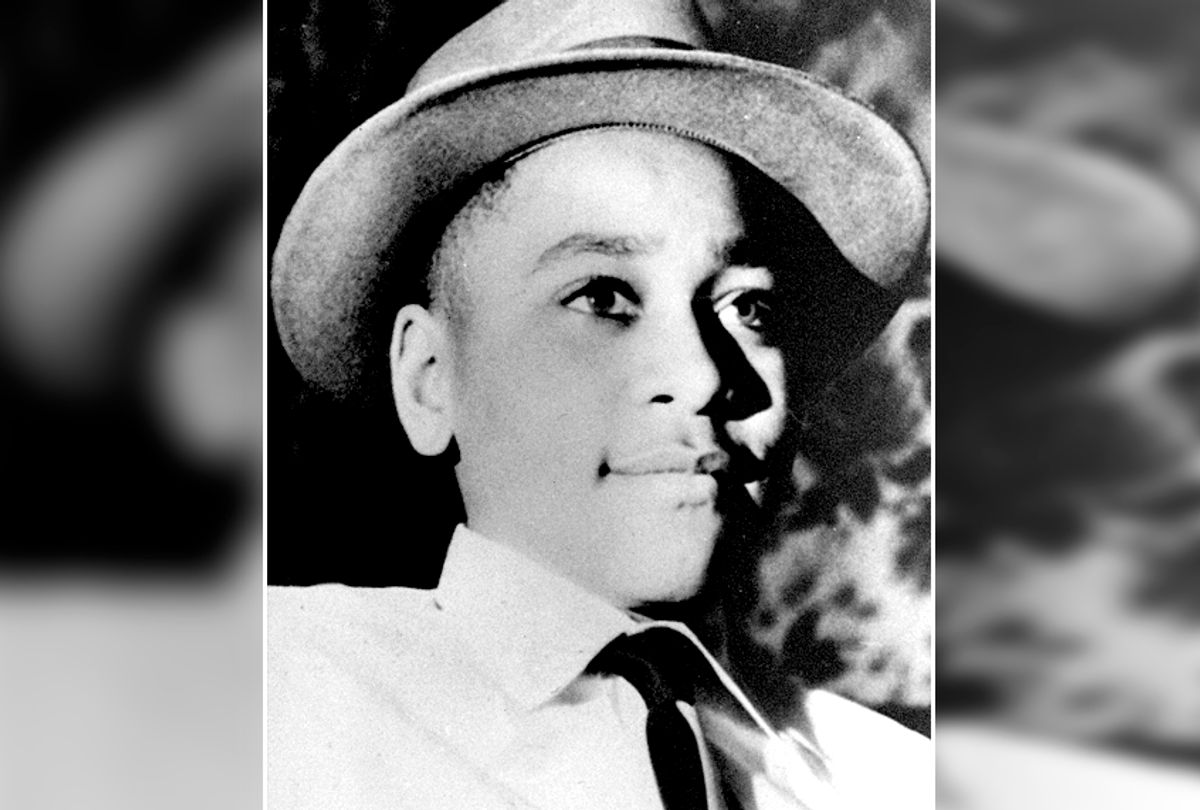The federal government has quietly reopened its investigation into the murder of Emmett Till, the 14-year-old black child who was brutally beaten and killed in Mississippi in 1955.
Published images of Till's mutilated body stunned the nation and the racially-motivated homicide is seen by many as a catalyst to the civil rights movement. In March, the Department of Justice told Congress in a report that it was reinvestigating Till's murder, "based upon the discovery of new information," the Associated Press first reported.
The annual federal report does not elaborate on what this information is, but it follows the publication of "The Blood of Emmett Till," a book released in 2017 that includes a central figure in the case admitting to lying about what transpired.
Till was visiting relatives in the Mississippi Delta from Chicago in the summer of 1955 when he entered a store and encountered a white woman who complained that the teenager had grabbed her and said sexual remarks to her. Days later, Till was abducted from his family's home in the middle of the night, beaten, shot and his body thrown into a river, weighted down by a cotton gin fan with barbed wire.
"The book, by Timothy B. Tyson, quotes a white woman, Carolyn Donham, as acknowledging during a 2008 interview that she wasn’t truthful when she testified that Till grabbed her, whistled and made sexual advances at a store in 1955," the AP reported.
In the book, Donham, who was 21 at the time of Till's murder, said she can't remember exactly what happened between them, but concludes that "Nothing that boy did could ever justify what happened to him."
Donham's then-husband Roy Bryant and his half-brother J.W. Milam, both white men, were charged with Till's murder, but were acquitted by an all-white Mississippi jury. The men confessed to the slaying a year later during an interview with Look Magazine. They were never retried and both suspects are now dead.
Donham, 83, who lives in Raleigh, North Carolina, declined to comment about the renewed DOJ probe, according to the AP.
Paula Johnson, co-director of the Cold Case Justice Initiative at Syracuse University, a group that reviews unsolved civil rights murders and seeks justice for families, told the AP, they were happy the case was being reopened, "so that ultimately or finally someone can be held responsible for his murder." She added that she couldn't think of any new revelations that could have motivated the DOJ to reinvestigate, aside from Tyson's book.
Deborah Watts, a cousin of Till and co-founder of the Emmett Till Legacy Foundation, told the AP Wednesday that she was not aware of the investigation's revival, but said it's "wonderful," that Till's murder was being reexamined. "None of us wants to do anything that jeopardizes any investigation or impedes, but we are also very interested in justice being done," she added.
According to the AP, Till's relatives pushed Attorney General Jeff Sessions to reopen an investigation into the case once "The Blood of Emmett Till" published last year.
There has long been speculation that a white woman was present in the car when Till was kidnapped from his uncle's home, and in 2004, the Justice Department reopened an investigation into his murder, in search of others who participated in the killing. District attorney, Joyce Chiles, had sought a manslaughter charge, then, against Donham, but a grand jury declined to indict her.
Reverend Jesse Jackson responded to the news on Twitter, saying: "In memory of #EmmettTill and thousands of other black men, women & children lynched, we must finally pass anti-lynching law."
Since 1918 more than 200 anti-lynching bills have been introduced to Congress and all have been voted down. This year, Democratic senators Kamala Harris and Cory Booker and Republican senator Tim Cook introduced a bill that would make lynching a federal hate crime and punishable by up to life in prison.
But the renewed probe by the Justice Department into Till's murder indicates a willingness to prosecute racial violence from the past and a failure to do so in the present. President Donald Trump pardoned Boxing legend Jack Johnson for a racist conviction 115 years later, yet, just last week, it was reported that the Trump administration plans to reverse Barack Obama's affirmative action policy. And last year, Sessions said the Justice Department would step away from federally investigating police departments, calling it bad for "morale" and refusing to admit that the police brutality and killings of unarmed black men, women and children is a systematic problem.



Shares